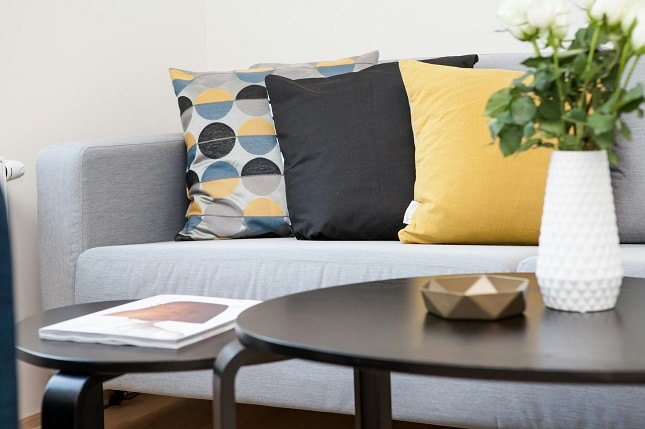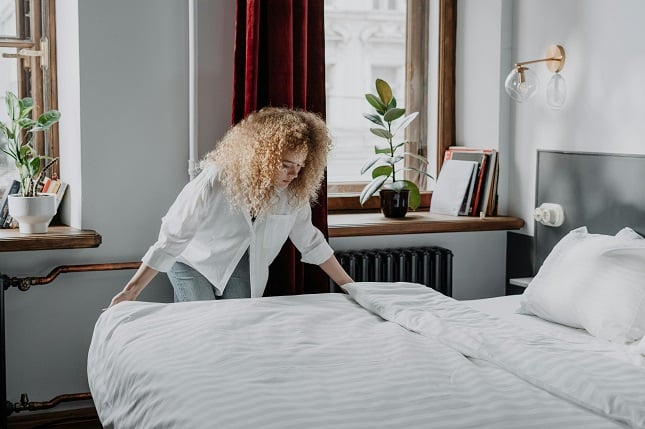Living abroad, whether for work, adventure, or retirement, is a dream come true for many. But once you’ve leapt into life in a new country, there’s one question that quietly lingers: What happens to the home you’ve left behind? Leaving your property vacant for months at a time can introduce a slew of concerns, from maintenance issues and weather damage to opportunistic intruders. Thankfully, with the right systems and preparation in place, you can keep your home safe, secure, and in good condition while you enjoy life elsewhere.
One area that’s often overlooked in the excitement of an international move is your own health and wellbeing. While preparing your property for long-term vacancy, it’s wise to also consider how you’ll protect yourself overseas, especially when it comes to healthcare. Local coverage often isn’t transferable, and relying on travel insurance for extended stays can leave you exposed to major medical expenses. This is where comprehensive global health insurance comes in. Unlike short-term policies, global health plans offer long-term security across multiple countries, covering everything from emergency care to ongoing treatment, specialist visits, and even repatriation if necessary. It’s peace of mind not just for you, but for anyone depending on you.
Securing Your Property: Physical Safety and Smart Monitoring
Leaving a home unoccupied for any length of time invites risk, but not all risks are obvious. Yes, burglary is a concern, but so are things like hidden leaks, broken boilers, or even fallen trees. That’s why your first priority should be making the property physically secure and proactively monitored.
At a minimum, this includes checking all windows and doors for weak points, installing deadbolts or smart locks, and using timers to simulate occupancy with lights or electronics. However,
more and more homeowners are going a step further with app-connected security systems. Modern options allow you to monitor indoor and outdoor cameras, receive motion alerts, and even speak through intercoms, all from your phone, no matter where in the world you are.For neighborhood safety, registering with your local national neighbourhood watch can be a simple but powerful move. Not only does it place your home on a known watch list, but it also gives you a direct line to concerned neighbors who can report anything unusual. If you’re friendly with someone nearby, consider leaving a key with them in case of urgent access needs like frozen pipes or storm damage.
Maintenance From Afar: Keeping Up Appearances
A neglected property isn’t just an eyesore, it’s a flag to would-be intruders that nobody’s home. Overgrown gardens, overflowing gutters, or unshovelled snow can all signal vacancy. To keep up appearances, invest in basic maintenance services. Lawn care and gardening companies often offer seasonal packages for absentee homeowners. The same goes for roofers or gutter cleaners, who can do scheduled check-ins to ensure nothing is deteriorating while you’re away.
For those who prefer a more personal touch, and possibly a more cost-effective one, consider using house sitters. Many retired couples, pet lovers, or digital nomads are eager for short-term stays in exchange for simple duties like watering plants, forwarding mail, or checking the heating system. You get peace of mind, and they get a place to stay, it’s a win-win model that continues to grow in popularity among international homeowners.
Managing Utilities, Mail, and Admin While Abroad
Practicality is key when you’re managing a home remotely. Before leaving, consider whether to keep utilities active or place them on hold. In cold climates, for instance, you may want to keep heating set to a low level to prevent frozen pipes. In warmer areas, a dehumidifier may help protect interiors from moisture damage and mold.
Make a detailed list of every utility, subscription, and service tied to the property, and decide what needs cancelling, forwarding, or adjusting. Redirect your mail or set up scanning services that forward digital copies of important letters. Some banks and insurers may still require paper communication, so it’s worth having a trusted person in place, or investing in a mail-forwarding provider, to ensure nothing is missed.
Smart home devices can be your silent allies here. Leak detectors, thermostat controls, and smoke alarms can all be managed remotely via smartphone apps. That means you’ll be alerted to problems early, reducing the chance of returning to major damage, or expensive surprises.
Planning for the Long-Term: When Absence Becomes Indefinite
Not every move abroad comes with a return ticket. For some, the initial adventure turns into a permanent relocation, or at least an indefinite one. If that happens, it’s worth reassessing the value and purpose of your original property. Is it serving your goals to keep it empty? Could it be rented out? Or is it time to consider selling altogether?
These decisions can be emotional, especially if the house is a family home filled with memories. But from a financial and logistical standpoint, letting go of an underused property can free up significant capital, reduce your stress, and allow you to invest in your life abroad. If you’re unsure, renting the property short-term may be a useful halfway step, giving you income and flexibility while you make longer-term decisions.
Final Thoughts: Peace of Mind Is the Real Goal
Managing a home while living overseas is not just about locks, timers, and lawnmowers, it’s about building a system that supports your lifestyle. Whether your move is temporary or permanent, having the right infrastructure in place, from global health insurance to trusted house sitters and community watch programs, allows you to enjoy your time abroad without being constantly tethered to worries back home.
The ultimate goal is peace of mind: knowing that both you and your property are protected, so you can focus on new experiences, connections, and opportunities. After all, if you’ve made the leap to live globally, your support systems should be just as expansive.


